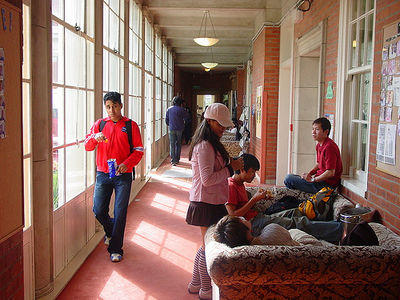What is cultural competence?
| Practice Context | |
|---|---|
| Biculturalism | |
| What does cultural competence mean? | Objectives | What is cultural competence? | Biculturalism for teachers | e-Learning activity - Exploring cultural competence. | Summary |
What is cultural competence?
Cultural Competence is a term that in an education context refers to providing safe and inclusive teaching for culturally diverse populations. This term has become a regular part of education language in recent years and has long been incorporated into healthcare language and practice.
There are varying definitions relating to the context.
"Culturally competent teachers are able to use the learner’s culture/s as a building block to learn and teach. They understand how to utilise the learner’s culture/s to aid the teaching and learning process, as well as to facilitate relationships and professional growth." (New Zealand Teachers Council, n.d. p.2.)
There are key concepts common to the range of definitions which include:
- awareness of own cultural perspectives and attitude towards difference
- knowledge of diversity and differing perspectives
- skills around communicating and interacting with others across cultures
- respect for diversity
|
Lindsey et al stated "The first step for teachers in developing cultural competencies is recognizing how their own perspectives and knowledge of the world are rooted in a particular cultural, racial, and ethnic identity and history" (cited in Trumball & Pacheo, 2005, p.3.).
|
References: New Zealand Teacher's Council. (n.d). Tātaiako Cultural Competencies for Teachers of Māori Learners : A resource for use with the Graduating Teacher Standards and Registered Teacher Criteria. New Zealand Teacher's Council. Retrieved from http://www.teacherscouncil.govt.nz/required/Tataiako_RTCandGTS.pdf
Trumbull,E. & Pacheco, M. (2005). Leading with Diversity. Brown University and Pacific Resources for Education and Learning. Retrieved from http://www.alliance.brown.edu/pubs/leading_diversity/lwd_entire.pdf
